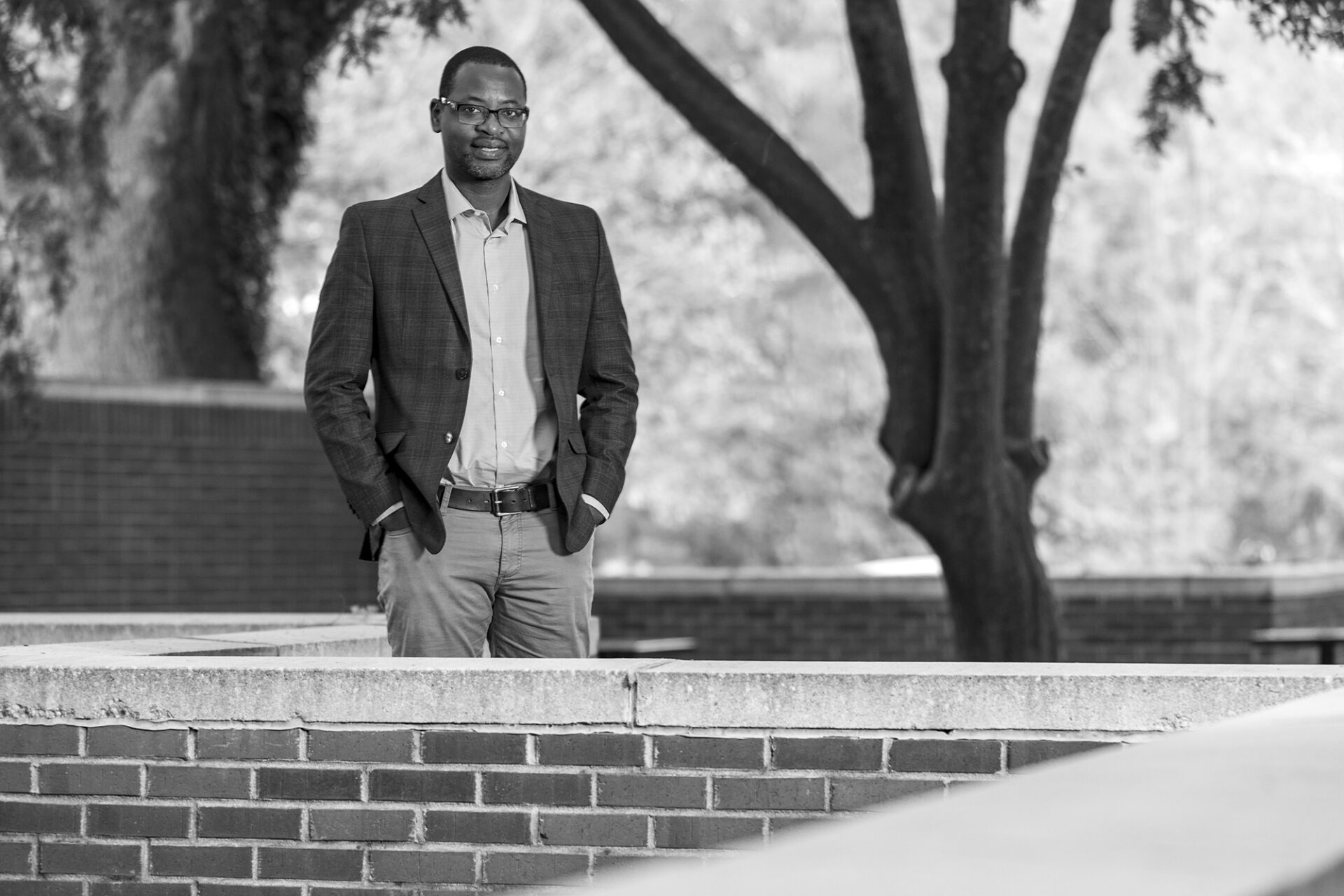Rooted: David Ansong
The social work professor promotes the economic stability and well-being of families and children.
By UNC Research
November 5, 2025

Impact Report

David Ansong’s research promotes the economic security and well-being of families and children across the U.S. and globe.

The UNC School of Social Work is ranked third in the nation among top schools of social work by U.S. News & World Report.
David Ansong has worked for UNC-Chapel Hill for 12 years in a variety of roles, most recently as associate professor and the Wallace Kuralt Early Career Distinguished Scholar within the UNC School of Social Work. His research focuses on developing, testing, and scaling interventions that enhance families’ financial capability, economic security, and social development to improve the well-being of children and youth.
What brought you to Carolina?
I joined the UNC School of Social Work in Fall 2013 after completing my PhD at Washington University in St. Louis, Missouri. I was drawn to Carolina because of its reputation for global social development innovation and the opportunity to collaborate with faculty who are actively addressing economic security challenges faced by disadvantaged individuals and families. The university’s infrastructure and support for intervention research that promotes well-being among vulnerable youth and communities around the world solidified my decision to come here.
How has your role here changed over the years?
I began as an assistant professor and faculty fellow at the Global Social Development Innovations (GSDI) center. Since then, my role has expanded substantially. I became an associate professor in 2020 and was named the Wallace Kuralt Early Career Distinguished Scholar.
My responsibilities have expanded across research, teaching, and service. I now lead large-scale financial capability and asset-building initiatives in multiple countries. In the U.S., my work with the child welfare systems in North Carolina and Illinois demonstrates how investing in caregivers’ financial security can enhance family engagement and improve child safety and well-being.
I have assumed a more active leadership role in our doctoral program, teaching several advanced quantitative methods courses and overseeing the program’s methods examination. I also mentor junior faculty, postdoctoral scholars, and doctoral students in research and scholarly writing. Receiving the 2023 and 2025 Excellence in Doctoral Student Mentoring Award is a meaningful recognition of my commitment to developing the next generation of scholars.
What’s kept you at Carolina?
The collaborative environment and the university’s commitment to rigorous, community-centered intervention research. I’ve been able to launch multi-country studies and work with a globally minded network of colleagues at UNC-Chapel Hill and partner institutions. The support for interdisciplinary projects and economic security research has been a key factor in my continued engagement here.
What contribution are you most proud of?
Spearheading financial interventions for caregivers in partnership with communities in both Africa and the U.S. My team and I have co-designed, tested, and adapted economic security programs that strengthen household resilience, support youth transitions, and build systems for local adaptation.
In the U.S., this includes work that supports the financial resilience of relatives caring for children in foster care. Internationally, I’ve collaborated with communities and agencies to develop programs that help young people build resilience — whether escaping labor trafficking in Malawi and Zambia or rebuilding their lives after incarceration in Ghana.
I am especially proud of the institutions that have adopted our approaches long term, the communities now leading their own versions, and the policy decisions informed by our research. This type of sustainable, locally grounded impact continues to drive my work.
What is a uniquely Carolina experience you’ve had?
Working with Innovate Carolina’s Translating Innovative Ideas for the Public Good Award and collaborating with the Innovation for the Public Good team on a pilot study to enhance financial literacy and stability for young offenders. The project reflects UNC-Chapel Hill’s commitment to research that creates real-world impact and its culture of turning ideas into practical solutions for underserved populations.
Rooted recognizes long-standing members of the UNC-Chapel Hill community who have aided in the advancement of research by staying at Carolina. They are crucial to the UNC Research enterprise, experts in their fields, and loyal Tar Heels. Know someone we should feature? Nominate a researcher.
